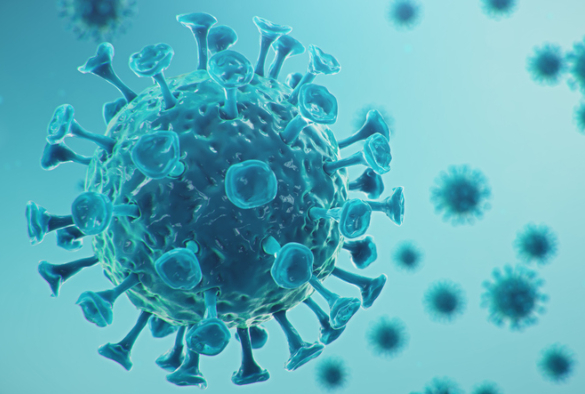The University of Liverpool is leading a new global project to better understand how and why COVID-19 affects the brain in order to develop measures to help improve patient outcomes.
The University has secured £860,000 from the National Institute for Health Research (NIHR), in partnership with UK Research and Innovation (UKRI) to establish the COVID-Neuro Global programme in partnership with five leading research organisations in Brazil, India and Malawi.
The new programme is being led by Professor Tom Solomon at the University’s Institute of Infection, Veterinary and Ecological Sciences, who said: “While most people with COVID-19 have respiratory problems, all over the world we are seeing many patients with neurological complications too, such as stroke, delirium and encephalitis. We want to understand why, and who is at highest risk of developing these problems, to see if we can prevent these devastating effects by identifying risk factors that we can treat. This is especially important in some overseas countries like India, which is seeing one of the largest COVID-19 outbreaks anywhere in the world.”
Working as part of a global network, the researchers will compile data from patients across the world to create a single large report of the full range of neurological disease in COVID-19. The team will also carry out research studies with COVID-19 patients in hospitals in Brazil, India and Malawi to identify risk factors for neurological disease, especially those which can be treated, such as lack of oxygen in the blood. They will also look at outcomes for neurological patients, to help better understand what might predict a poor outcome.
The new programme builds upon the work of the NIHR Global Health Research Group on Brain Infections (Brain Infections Global), which Liverpool coordinates. The group has already been supporting the COVID-19 response through their international COVID-Neuro Network, the COVID-Neuro Resource, and a series of webinars. The new programme also aligns closely with the work of the University’s National Institute for Health Research Health Protection Research Unit on Emerging and Zoonotic Infections (HPRU-EZI), which was set up to tackle emerging infectious diseases like COVID-19.
The COVID-Neuro Global programme partners include The College of Medicine (Malawi); Malawi-Liverpool-Wellcome Trust Clinical Research Programme (Malawi); Oswaldo Cruz Foundation (Fiocruz; Brazil); National Institute for Mental Health & Neuro Sciences (India); Christian Medical College Vellore (India) and The Encephalitis Society (UK).
Professor Ravi Vasanthapuram, Senior Professor and former Registrar at the National Institute of Mental Health and Neuro Sciences in Bangalore, India, said: “As a large institute specialising in both neurological diseases and viral infections, we’re delighted to have the chance to delve deeper into the effects COVID-19 has on the brain, and improve care for people across India and other low- and middle-income countries.”
Dr Ava Easton of the Encephalitis Society, who is Chair of the programme’s Patient, Public and Community Engagement and Involvement Panel, said: “With so many people being affected by the neurological effects of COVID-19, this is a really important project. Diseases of the brain often leave the lives of those affected and their families devastated and battling with the challenging, life-long consequences. I am delighted to be leading this panel in order to guide the work of the group’s experts from around the world, ensuring it aligns with the voices and needs of patients, the public and their communities.”
